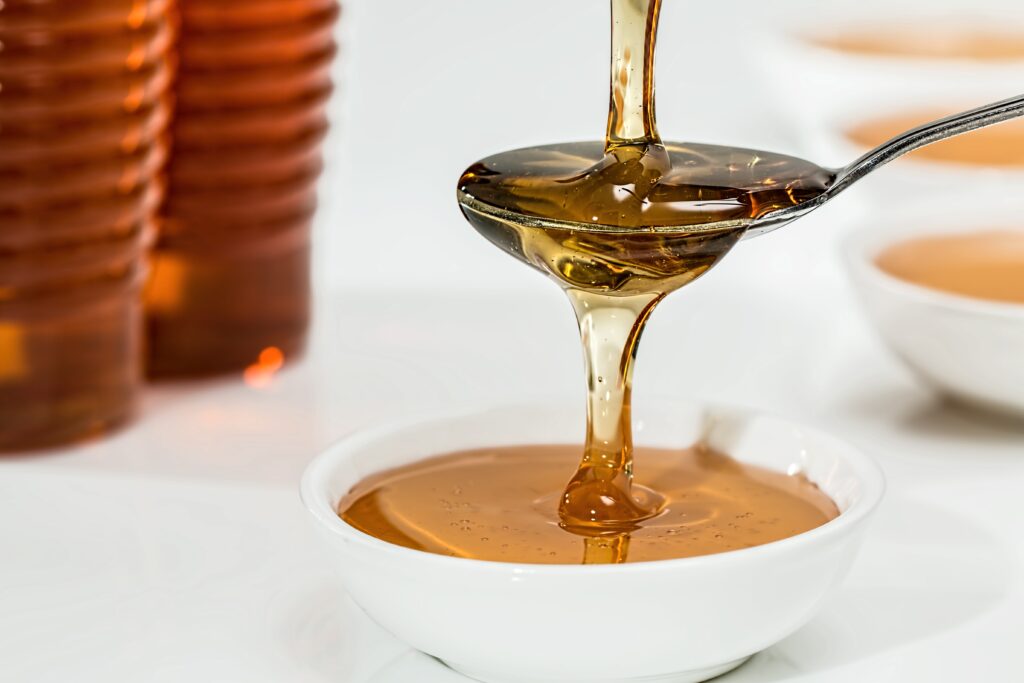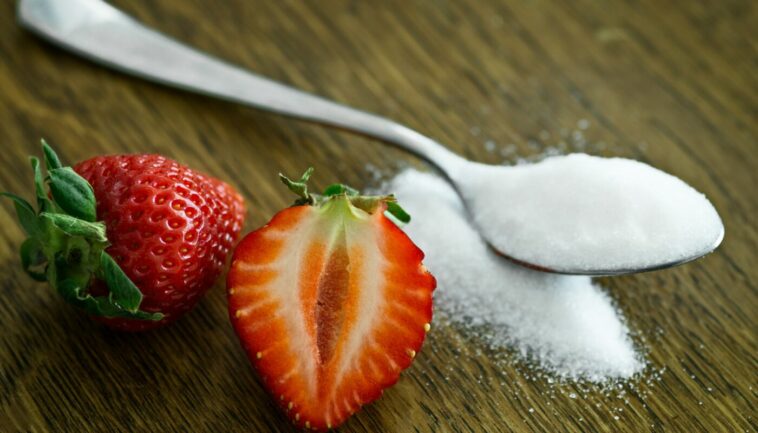Sugar substitutes can be a tricky issue on a keto diet. High-carb sweeteners, even natural ones like honey, can be forgotten because they are high-carb.
But sugar substitutes with zero carbohydrates and/or calories are not necessarily ideal: some may contain ingredients that affect the amount of carbohydrates, while others may cause digestive upset, yet the question of how the sugar substitutes affect the intestinal microflora.
If you’re new to the subject, here are 4 categories of sweeteners :
- Sugar
- Natural sweeteners (honey, maple syrup, stevia, etc.)
- Synthetic sweeteners (saccharin, aspartame, sucralose, etc.)
- Sugar alcohols (erythritol (erythritol), xylitol, mannitol, etc.)
There are a lot of names, but not understandable enough, but do not worry. Here is a small overview of what will help you navigate in all this diversity:
You may not crave sweets on a keto diet.
Before you start worrying about which sugar substitute for choosing, think about whether you need it at all?
Some studies show that even a small decrease in carbohydrate intake can reduce sugar cravings after a few weeks.
But even on a keto diet, many people continue to love sweets, so if you are one of them, it is essential to find those sweeteners that will not prevent you from achieving your goals. There is no need to give up what you love. However, you may be surprised at what happens if you give your body a “reboot” – all of a sudden, the urge to chew candy continually can come to naught.
“Natural” does not mean low-carb.
If you want to use sugar substitutes, don’t be fooled that “natural = keto = good.”

Natural doesn’t mean keto-friendly. Many “natural” sugar substitutes are too high in carbs for keto. Let’s compare the amount of carbohydrates in one teaspoon of some “natural” sugar substitutes:
- White (regular table) sugar: 4.2 g
- Brown sugar: 4.5 g
- Honey: 5.75 g
- Maple syrup: 4.5 g
- Agave syrup: 5.3 g
- Molasses: 5 g
In other words, most “natural” sweeteners have at least the same amount of carbs as regular sugar. Therefore, they are not suitable for keto in large quantities, regardless of their degree of naturalness.
However, none of the above applies to stevia: it is also one of the “natural” sweeteners, but, unlike honey or maple syrup, it does not contain carbohydrates. So stevia is suitable for a keto diet (not because it is “natural,” but because it does not contain carbohydrates).
Of all sugar alcohols, erythritol (erythritol) has the least effect on the intestines.
Sugar alcohols (sorbitol, mannitol, etc.) do not contain as many carbohydrates as regular table sugar. The body does not fully absorb these carbohydrates, so you get even fewer carbohydrates from them than indicated on the label. Some people even say that sugar alcohols can be ignored altogether because the body does not absorb them.
And while everything looks great on paper, they are not fully absorbed is not necessarily good. Many people report that sugar alcohols cause stomach upset, gas formation, bloating, and other bowel problems. Together with beans and Brussels sprouts, sugar alcohols are classified as “musical” foods.
In small quantities, most people do not have any problems with sugar alcohol, but if you want to choose one for everyday use, including baking, your gut may not like it. The exception is erythritol (erythritol).
Erythritol is absorbed in the small intestine, and most of it is immediately excreted in the urine, so it does not cause the unpleasant effects of other sugar alcohols. For example, this study shows that humans much better tolerate erythritol than xylitol without causing any symptoms.
Therefore, if you want to use sugar alcohol in your diet, choose erythritol, and it is the least likely to affect healthy digestion.
Research Shows Successful Keto Diets May Include Synthetic Sweeteners
Another category of sugar substitutes is synthetic sweeteners such as aspartame and sucralose.
Unlike everything “natural,” people do not like anything “synthetic” (one chemistry, ew!). However, just as “natural” does not mean “suitable for keto,” and “synthetic” does not necessarily mean something wrong.
How beneficial they are to health is another matter, but concerning ketosis, studies show that synthetic sweeteners can be used on a ketogenic diet:
- In this study, scientists used saccharin in their children’s diets. They received it every day and remained in ketosis.
- And in this study, researchers treated 22 obese patients with a keto diet based on the Mediterranean diet. Their diet included synthetic sweeteners such as sugar, aspartame, sucralose, and others. Patients lost an average of 14 kg and improved their health significantly after 12 weeks on a diet.
But on the other side.
It is still not known for sure how synthetic sweeteners affect the intestinal microflora.
Just because synthetic sweeteners don’t kick you out of ketosis doesn’t mean they’re good for you.
In 2012, a review of studies was released, which stated that “most studies found no effects of non-nutritive sweeteners on gut hormones or glucose absorption.” Those. Scientists have concluded that zero-calorie synthetic sweeteners do not cause metabolic problems, cause diabetes, increase hunger, or do anything else that could cause weight gain.
However, in 2014, a new study suggested looking at the problem from a different angle, namely, considering their effect on the intestinal microflora. This study shows that synthetic sweeteners can interfere with healthy metabolism (cause glucose intolerance) by disrupting the gut microflora. 2014 was a long time ago, but even a study published in 2017 still leaves the question open.
Therefore, if you turn to a keto diet due to metabolic problems, insulin resistance, or blood sugar problems, this issue requires special attention.
When choosing a sugar substitute in the store, read the ingredients!
With many sugar substitutes, you need a minimal amount to get the same sweetness level as a tablespoon of sugar. But it is not always convenient to operate with such small quantities, especially in baked goods, so many manufacturers add extraneous fillers to their sugar substitutes to add volume, and the buyer could use them as sugar in a 1: 1 ratio.
Bad news: Some of these fillers contain carbohydrates, so some brands of supposedly low-carb sugar substitutes may contain carbohydrates.
If you use them, for example, to sweeten tea or coffee, they are a minimal amount of carbohydrates, which will not affect you much. However, if you are going to bake with such sweeteners, the amount of carbohydrates can skyrocket.
Therefore, carefully read the labels and choose those sugar substitutes that contain 1-2 ingredients.
Stevia is the safest choice.
People would like there to be some “useful” sweetener – it doesn’t need to exist. Many people talk about stevia’s benefits, particularly for people with metabolic disorders, but this is still an open question.
However, stevia does not affect your blood sugar levels or cause you an upset bowel movement. Even if you don’t get any benefit from it, then at least you won’t get any harm either. The only negative is the unusual aftertaste, but most people stop feeling it after a while.
What’s your favorite keto sugar substitute?



